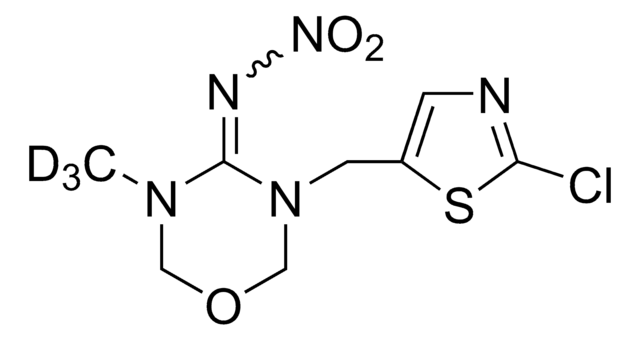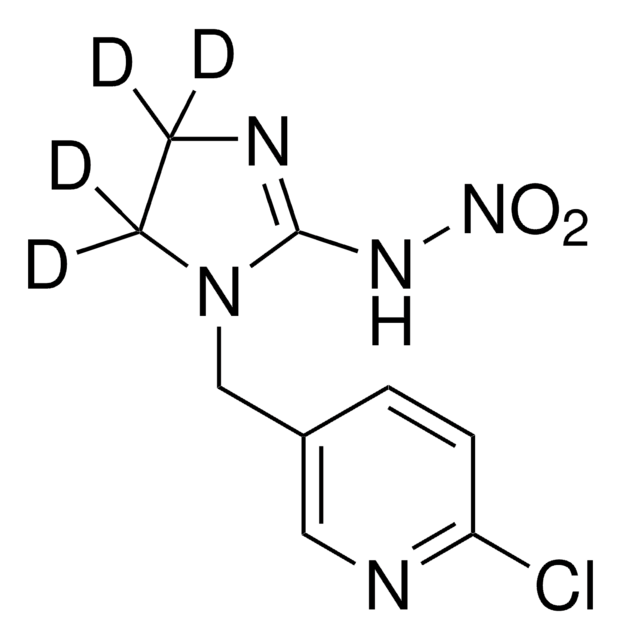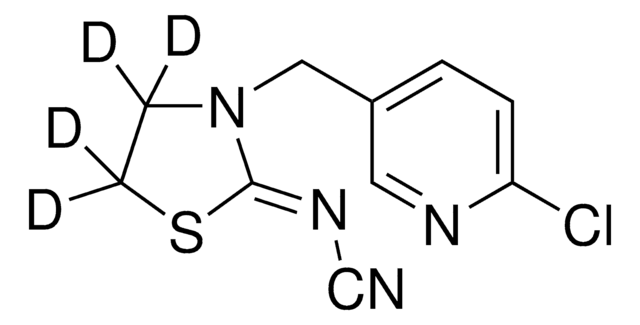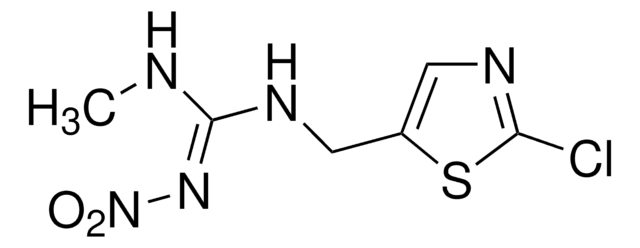56816
Clothianidin-d3
PESTANAL®, analytical standard
Synonym(s):
(E)-1-(2-Chloro-5-thiazolylmethyl)-3-(methyl-d3)-2-nitroguanidine
About This Item
Recommended Products
grade
analytical standard
Quality Level
product line
PESTANAL®
Assay
≥97.0% (HPLC)
shelf life
limited shelf life, expiry date on the label
technique(s)
HPLC: suitable
gas chromatography (GC): suitable
application(s)
agriculture
environmental
format
neat
mass shift
M+3
SMILES string
[2H]C([2H])([2H])N\C(NCc1cnc(Cl)s1)=N/[N+]([O-])=O
InChI
1S/C6H8ClN5O2S/c1-8-6(11-12(13)14)10-3-4-2-9-5(7)15-4/h2H,3H2,1H3,(H2,8,10,11)/i1D3
InChI key
PGOOBECODWQEAB-FIBGUPNXSA-N
Related Categories
General description
Application
Packaging
Legal Information
Signal Word
Warning
Hazard Statements
Precautionary Statements
Hazard Classifications
Acute Tox. 4 Oral - Aquatic Acute 1 - Aquatic Chronic 1
Storage Class Code
11 - Combustible Solids
WGK
WGK 3
Flash Point(F)
Not applicable
Flash Point(C)
Not applicable
Choose from one of the most recent versions:
Already Own This Product?
Find documentation for the products that you have recently purchased in the Document Library.
Customers Also Viewed
Protocols
Learn more about Neonicotinoids - active substances used in plant protection products to control harmful insects.
Analysis of banned neonicotinoid insecticides from dandelion blossoms using QuEChERS and LC-MS.
Learn more about Neonicotinoids - active substances used in plant protection products to control harmful insects.
Learn more about Neonicotinoids - active substances used in plant protection products to control harmful insects.
Our team of scientists has experience in all areas of research including Life Science, Material Science, Chemical Synthesis, Chromatography, Analytical and many others.
Contact Technical Service










